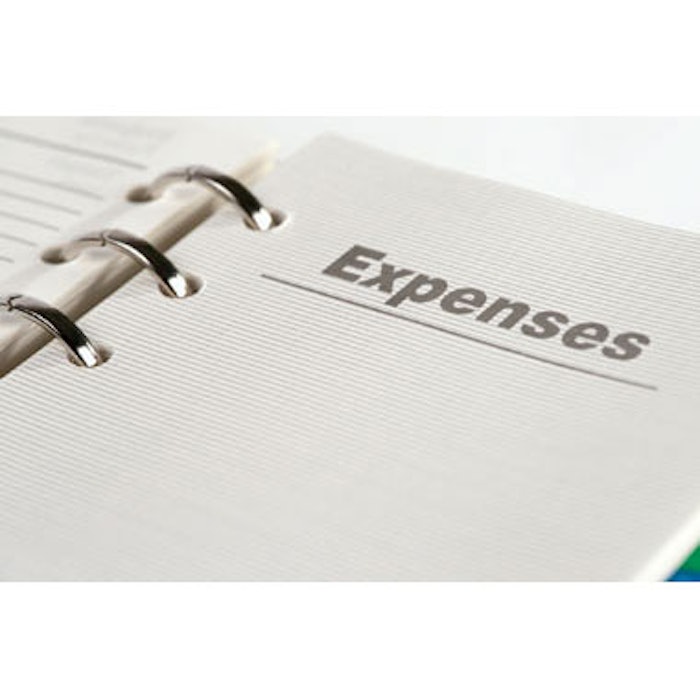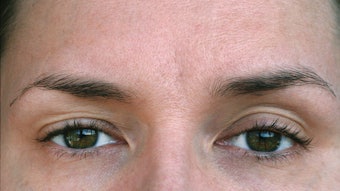
Planning to attend an out-of-town conference? Let Uncle Sam help foot the bill. Principals, managers, and employees of every medical aesthetic practice can legitimately claim an income tax deduction for attending an industry event that will benefit the practice. That means the government will underwrite a portion of the costs in the form of a tax deduction—but only if you follow the rules.
Tax rules clearly state that all travel expenses are tax deductible if the trip is primarily for business purposes. If you extend your stay for a vacation, make a non-business side trip, or take part in other non-business-related activities, you can still deduct your practice-related travel expenses.
If, on the other hand, the trip is primarily for personal reasons, such as a vacation, you can deduct only the expenses incurred that are directly related to attending the event.
What Can I Deduct?
For travel that is ‘primarily’ business-related, expenses incurred while traveling to and attending the event are tax deductible. They include:
- Conference or event registration fees and any related books or materials.
- Round-trip airfare, trainfare, busfare, or the Standard Mileage Allowance—which was 56.5 cents in 2013—for business travel if you drive (or, as an alternative, a percentage of the total actual costs of operating your car).
- Taxi fares to and from the airport, train or bus station, to and from the hotel, and to and from other locations while away.
- Hotel or motel lodging expenses, including tips and the cost of laundry services.
- All meals (50% is actually deductible).
Although the cost of meals during business travel is deductible, there are limits. The IRS notes that deductions cannot be taken for food or entertainment that is “lavish or extravagant under the circumstances.” In addition, food and beverage costs incurred in the course of business travel fall within the scope of the tax law’s overall limitation for meal and entertainment expenses that is, generally, 50% of such expenses.
Image copyright istockphoto.com
[pagebreak]
Related expenses, such as taxes and tips in the case of meals, and room rental and parking fees in the case of “entertainment” expenses, must be included in the total expense before applying the 50% reduction.
What If By Sea?
The cruise ship industry is not too happy, but for years our tax rules have permitted only a limited tax deduction for expenses incurred while attending business events on U.S. cruise ships. The deduction is limited to $2,000 for all cruise-related convention expenses incurred during a tax year. This limited deduction is available only if all of the following requirements are met:
- The convention, seminar, or meeting is directly related to your trade or business.
- The cruise ship is a vessel registered in the U.S.
- All of the cruise ship’s ports of call are in the U.S. or in possessions of the U.S.
- You attach to your return a written statement signed by you that includes: the total days of the trip (not including the days of transportation to and from the cruise ship port); the number of hours each day that you devoted to scheduled business activities; and a program of the scheduled business activities of the meeting.
- You attach to your return a written statement signed by an officer of the organization or group sponsoring the meeting that includes: a schedule of the business activities of each day of the meeting; and the number of hours you attended the scheduled business activities.
International Business Travel
No tax deduction is allowed for expenses incurred while attending a conference or meeting held outside the “North American area,” unless the attendee can prove the meeting is directly related to the active conduct of his or her trade, business or profession, and that it is as reasonable for the meeting to be held outside the North American area as within it.
The “North American area” is defined as the United States, its possessions, the Trust Territory of the Pacific Islands, Canada and Mexico. Also included are so-called “beneficiary countries,” such as Panama, that have information exchange agreements with the U.S.
[pagebreak]
That means the expenses of attending a convention outside the IRS’s “North American area,” are tax deductible only if the event is sponsored by a foreign organization or if the foreign location is the only place specialized information will be available or new equipment will be displayed making the location “reasonable.”
Family and Staff Deductions
If traveling with family members, only the expenses of the attendee are deductible. But, if a spouse or other family member works for the practice special rules apply:
Should any staff member, including the attendee’s spouse or family members, accompany them to an industry event, either the attendee or the aesthetic practice can deduct the employee’s travel expenses. The deduction is allowed only if the following requirements are met:
- The employee must be a bona fide employee of the practice or business;
- The employee must have a bona fide business purpose for the trip; and
- The employee would otherwise be allowed to deduct the convention expenses.
In order for a bona fide business purpose to exist, there must be a real business purpose for the individual’s presence. Incidental services, such as taking notes or assisting in entertaining, is no longer enough.
As an alternative to the actual cost deduction method, both self-employed medical practitioners and employees can deduct a standard “per diem allowance” for their daily meals and incidental expenses while attending a convention.
The Per Diem Alternative
If you deduct travel expenses, you must substantiate the time, place and business purpose of the trip. However, when it comes to the actual expenses, you have a choice: You (and your employees) can keep receipts to verify costs or you can use the IRS-provided “per diem” allowance for lodging, meals and incidental expenses.
For travel after October 1, 2013, the maximum per diem allowance is $251, with a per diem allowance of $170 for lodging and $52 for Meals and Incidental Expenses (M&IE). This rate includes tips given to porters, baggage carriers, bellhops and hotel maids (so-called “incidental” expenses). On the first and last day of a business trip you can only claim 75% of the per diem amount, unless you can show you left before breakfast on the first day and returned after dinner on the last.
[pagebreak]
Documenting Expenses
As the IRS points out, the use of a per diem substantiation method is not mandatory. You may substitute actual allowable expenses. In order to claim actual cost tax deductions, you must be able to prove that the expenses were actually paid or incurred through receipts or statements. (Documentary evidence is not generally required for expenses that are less than $75.)
Keep in mind that the IRS deems business travel expenses—as well as entertainment expenses and business gifts—as particularly susceptible to abuse.
Writing off an Education
Many medical conferences and events include an educational component. While the agenda and subject matter need not specifically relate to your aesthetics practice, you—or your staff member—must reasonably be expected to gain some business benefit to claim a tax deduction for educational expenses.
The IRS allows individuals and businesses to deduct education expenses if the education either maintains or improves the skills required in your employment, or meets the express requirements of your employer and is a condition of continued employment, status, or rate of compensation.
If the practice is paying to send the staff member to an industry event, the practice can deduct those expenses, even if the employee uses vacation time or leave time to attend.
There are several benefits to attending industry conference and events. They provide numerous educational, networking and practice-building benefits. These benefits can be even sweeter when Uncle Sam is there to pick up part of the tab.
Mark E. Battersby is a Philadelphia-based freelance writer specializing in financial and tax-related topics.











